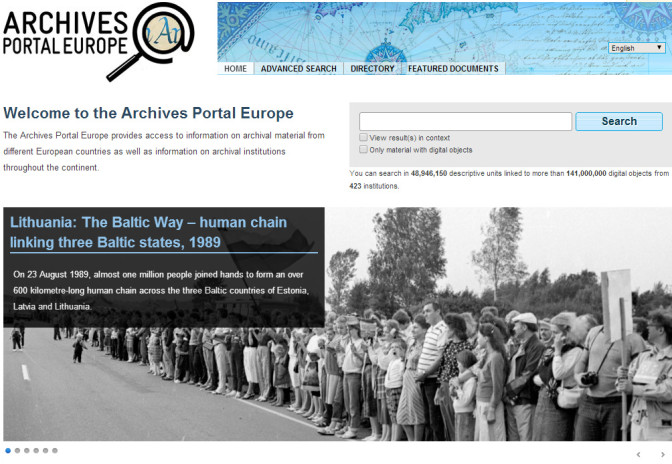Portals are websites that provide a single point of access to content of different suppliers. Often, search results in a portal will lead you to the pages of the participating organizations but often you don’t even realize that the data is aggregated from different sources behind the scenes.
In the world of archives, portals are pretty popular. Some are thematic, like the Netwerk Oorlogsbronnen [War Resources Network], while others aim at presenting all content of a geographic area. Archives Portal Europe (APE) is a good example of the last type. This website presents archival descriptions from the whole of Europe. If the underlying records have been scanned, you can click through to see them.
A few years ago, I wasn’t that big a fan of portals. All that money for yet another spotlight on the same data. Would it not be better to spend that money on scanning or indexing so that more data becomes available online? Surely Google makes everything accessible too? But APE made me change my mind.
For my population reconstruction of Sint Anna ter Muiden, I used APE to find out if there were any sources about this small town in Zeeland in other countries. Earlier, I had discovered the town ledgers in the Zeeuws Archief (1794-1797) and the Nationaal Archief (1612-1793). To my surprise, APE made me discover that the Algemeen Rijksarchief in Brussels, Belgium kept the city ledgers from 1399 until 1595. With just a few gaps, we have four centuries of city ledgers at our disposal. The ledgers contain information about the government of the city, but also about everyday activities like carpenters being hired to repair the roof of the town hall or an innkeeper who gets paid for the refreshments of the mayors who held a meeting at his inn. A wonderful resource for our study. Of course, I could have found these through Google, but archival descriptions often get buried there.
Besides this personal gain, I also see how APE stimulates collaboration. To deliver the content to APE, archives have to agree to standards about techniques and processes. Tools and best practices developed by one institute can be applied elsewhere, including by organizations that do not have the means to develop these tools themselves. That way, portals not only shine more light on existing data, but also stimulate that more data becomes available online.
A Dutch version of this column first appeared in Gen, the quarterly magazine of the Central Bureau for Genealogy, in October 2014.


